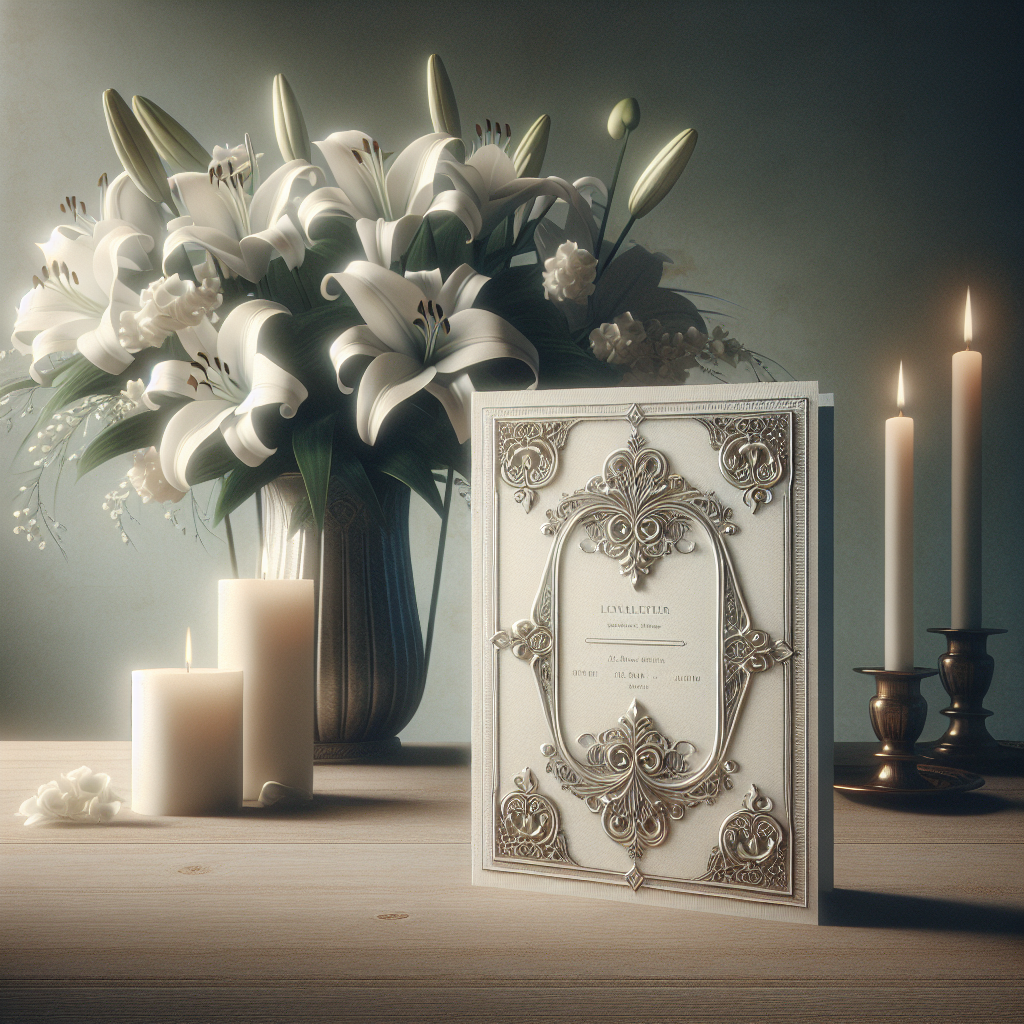Memorial cards are a touching way to honor and remember our loved ones who have passed away. These small, yet significant keepsakes serve as a lasting tribute, capturing the essence of the departed and providing comfort to those left behind. When considering what to put on a memorial card, it’s essential to choose elements that reflect the personality and spirit of the deceased, as well as offer solace to the grieving family and friends.
Creating a memorial card can feel overwhelming, especially during such an emotionally challenging time. However, with the right guidance and inspiration, you can craft a card that truly commemorates your loved one’s life. From heartfelt messages and meaningful quotes to personalized photos and symbols, there are many ways to make your memorial card unique and special.
At DisciplePress, LLC, we understand the importance of creating a thoughtful and memorable tribute. Our funeral and memorial printing services are designed to help you every step of the way. <a href="https://disciplepress.com“>Order funeral & memorial prints today and let us assist you in honoring your loved one in the most heartfelt manner.
Personalized Messages for Memorial Cards

When deciding what to put on a memorial card, one of the most impactful elements is the personalized message. These messages can range from short and sweet sentiments to longer, more detailed reflections on the individual’s life. The key is to convey the love, respect, and admiration you have for the departed.
Here are some ideas for personalized messages:
- Short Sentiments: Simple yet heartfelt phrases such as “In loving memory,” “Forever in our hearts,” or “Gone but never forgotten” can be quite powerful.
- Poems and Quotes: Including a favorite poem or a meaningful quote can provide comfort and reflect the values or personality of the deceased. Consider lines from classic literature, spiritual texts, or even song lyrics.
- Personal Reflections: Share a brief memory or story that encapsulates the essence of your loved one. This can be a way to bring a smile to the face of those reading the card, even in their time of grief.
- Religious Messages: If faith was important to your loved one, incorporating religious texts or blessings can be a source of solace for family and friends. Phrases like “Rest in God’s loving arms” or “May your soul find eternal peace” can be meaningful additions.
Remember, the most important aspect of a personalized message is its authenticity. Speak from the heart and let your genuine emotions guide your words. This will ensure that your memorial card serves as a true reflection of the love and memories shared with the departed.
Including Meaningful Quotes and Poems

One of the most touching elements you can include when deciding what to put on a memorial card is a meaningful quote or poem. These carefully chosen words can encapsulate emotions and thoughts that might be difficult to express otherwise, providing solace and a sense of connection to those who read them.
Here are some suggestions for incorporating quotes and poems:
- Inspirational Quotes: Quotes from famous authors, philosophers, or spiritual leaders can offer comfort and perspective. Consider words from figures like Maya Angelou, Rumi, or Helen Keller that resonate with themes of love, loss, and remembrance.
- Classic Poems: Poems by renowned poets such as Emily Dickinson, Robert Frost, or Mary Elizabeth Frye can evoke deep emotions and often speak to the universal experience of grief and memory. For instance, Mary Elizabeth Frye’s “Do Not Stand at My Grave and Weep” is a popular choice for its comforting message.
- Religious Verses: For those who find comfort in their faith, including verses from holy texts like the Bible, Quran, or Bhagavad Gita can provide spiritual solace. Psalm 23, “The Lord is my shepherd,” is a well-loved passage that many find reassuring.
- Personal Favorites: If the deceased had a favorite book, song, or poem, including an excerpt from that work can make the memorial card feel even more personal and meaningful. It serves as a tribute to their unique tastes and interests.
Choosing the right quote or poem requires thoughtful consideration. Reflect on the personality and beliefs of your loved one, as well as what might bring comfort to those who will be reading the card. This thoughtful approach ensures that the words chosen will truly honor their memory and provide a touching tribute.
Adding Photos and Visual Elements

Incorporating photos and visual elements is another heartfelt way to personalize a memorial card. Visuals have a unique power to evoke memories and emotions, making the card a cherished keepsake for friends and family members.
Consider the following ideas for adding photos and visual elements:
- Portrait Photos: Including a high-quality portrait of the deceased serves as a beautiful focal point. This could be a recent photo that captures their essence or a favorite image that holds special significance.
- Collage of Memories: A collage of various photos can tell a story of the person’s life. From childhood memories to significant milestones, this visual journey can offer a comprehensive look at their experiences and achievements.
- Scenic Backgrounds: Utilize backgrounds that were meaningful to the deceased or that evoke a sense of peace and tranquility. Nature scenes, such as a serene beach, a blooming garden, or a majestic mountain range, can add an extra layer of sentiment to the card.
- Symbols and Icons: Adding small icons or symbols that represent the person’s interests, hobbies, or beliefs can further personalize the card. For instance, a musical note for a music lover, a cross for someone religious, or a book for an avid reader can make the card more intimate and reflective of their life.
- Custom Borders and Frames: Customizing the borders and frames around photos with elegant designs or thematic elements can enhance the overall aesthetic of the card. This attention to detail can contribute to a polished and meaningful presentation.
When selecting photos and visual elements, ensure they are of high quality to maintain a professional look. Additionally, consider the layout and balance of text and images to create a harmonious design. These visual touches not only honor the memory of your loved one but also create a touching memento that those who receive it will treasure.
Details of the Deceased
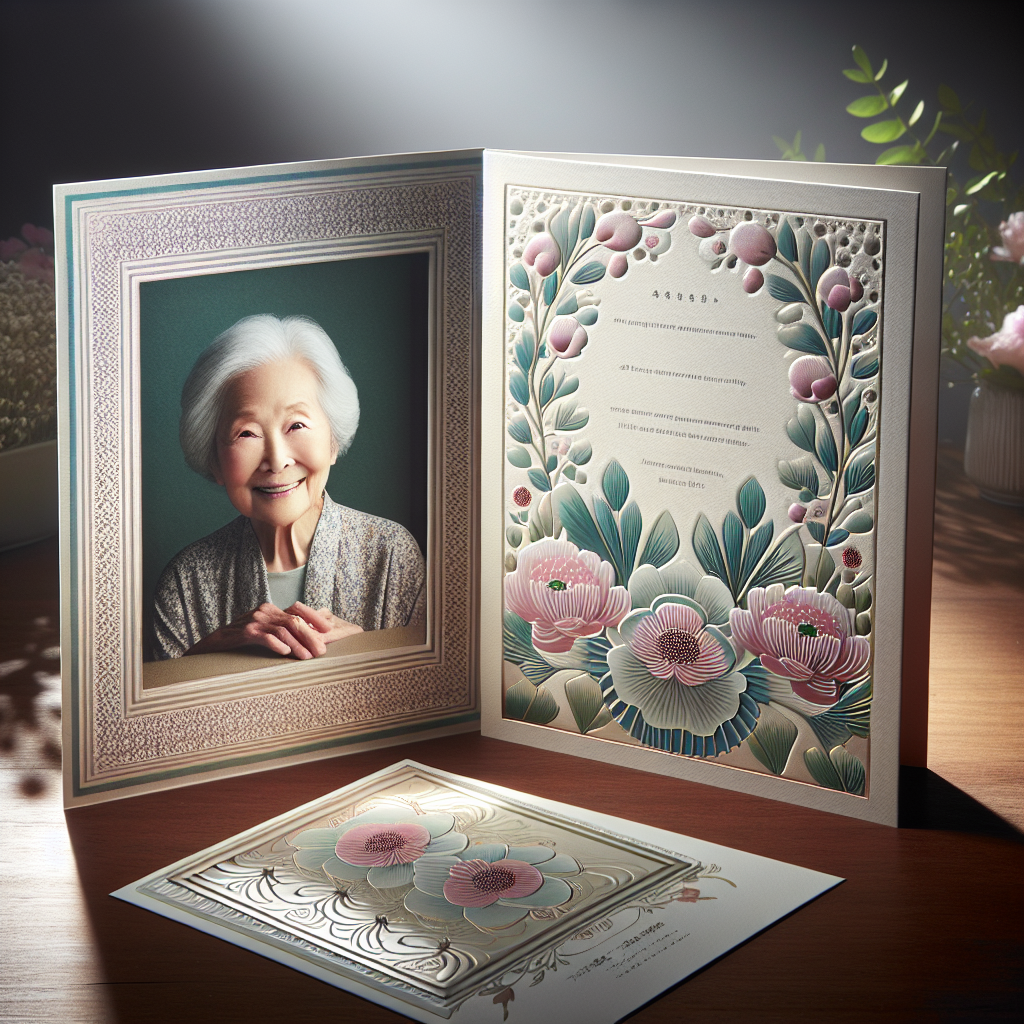
Including the details of the deceased is essential for creating a meaningful and informative memorial card. This section serves not only as a tribute but also as a way to inform attendees about the significant moments and achievements of the individual’s life.
Here are some key details to consider:
- Full Name: Include the full name of the deceased, often accompanied by any nicknames or titles they were known by. This adds a personal touch and helps everyone recognize and remember them.
- Dates of Birth and Death: Providing the birth and death dates offers a timeline of the person’s life, which can be comforting and significant for those reflecting on their journey.
- Place of Birth and Residence: Mentioning where the deceased was born and where they lived can provide context about their origins and the places they called home. This can be particularly meaningful for friends and family who shared those locales with them.
- Family Members: Listing immediate family members, such as spouse, children, parents, and siblings, acknowledges the loved ones left behind and connects the community through shared grief and support.
- Occupation and Accomplishments: Highlighting the deceased’s career, achievements, and contributions can celebrate their professional life and the impact they had in their field or community.
- Hobbies and Interests: Sharing what the deceased loved to do in their free time—whether it was gardening, painting, traveling, or any other passion—adds depth to their personality and helps people remember their unique qualities.
- Special Messages: Including a brief note or quote that encapsulates the essence of the deceased’s life or their philosophy can provide comfort and inspiration to those who read it.
When compiling these details, it’s important to ensure accuracy and sensitivity, as these personal elements form the core of the memorial card. By thoughtfully including these aspects, you create a tribute that truly honors the life and legacy of your loved one, and provides a source of comfort and reflection for all who receive the card.
Closing Thoughts and Final Words

As you conclude your memorial card, it is essential to leave attendees with closing thoughts and final words that encapsulate the essence of your loved one’s life and legacy. This section can serve as a poignant farewell, offering comfort and a sense of closure to those who are grieving.
Here are some ideas on what to include:
- Personal Message: A heartfelt message from the family or close friends can convey gratitude for the support received and share personal reflections on the deceased’s impact on their lives.
- Memorable Quotes: Including a quote or saying that was significant to the deceased or that embodies their spirit can leave a lasting impression. This could be something they often said, a favorite literary quote, or a spiritual passage.
- Words of Comfort: Offer words of solace to those mourning the loss. Phrases that acknowledge the pain of loss while reminding attendees of the love and memories that endure can be particularly comforting.
- Invitation for Remembrance: Encourage attendees to share their own memories and stories of the deceased. This can be done either at the memorial service or in private moments of reflection.
- Future Gatherings: If there are any future gatherings, anniversaries, or memorial events planned, this is an appropriate place to inform attendees, providing them with the opportunity to gather again in remembrance.
By thoughtfully crafting your closing thoughts and final words, you offer a meaningful end to the memorial card, helping to bring a sense of peace and unity to everyone who reads it. These final touches transform the card into a cherished keepsake that friends and family will hold dear for years to come.
Creating a heartfelt memorial card can be an emotional but rewarding process. To ensure your memorial cards are beautifully printed and professionally crafted, <a href="https://disciplepress.com“>order funeral & memorial prints today from DisciplePress, LLC. Our specialized services are here to help you honor your loved one with the respect and dignity they deserve.
 Free Shipping Over $50
Free Shipping Over $50  888-432-8363
888-432-8363


 Obituary/Programs
Obituary/Programs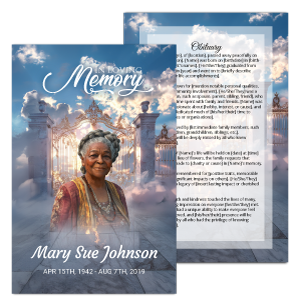 No-Fold Memorial Programs
No-Fold Memorial Programs 4 Page Funeral Programs
4 Page Funeral Programs 8 Page Memorial Programs
8 Page Memorial Programs 12 Page Funeral Programs
12 Page Funeral Programs 16 Page Funeral Programs
16 Page Funeral Programs 20 Page Funeral Programs
20 Page Funeral Programs Tri-Fold Funeral Programs
Tri-Fold Funeral Programs Complete Memorial Packages
Complete Memorial Packages
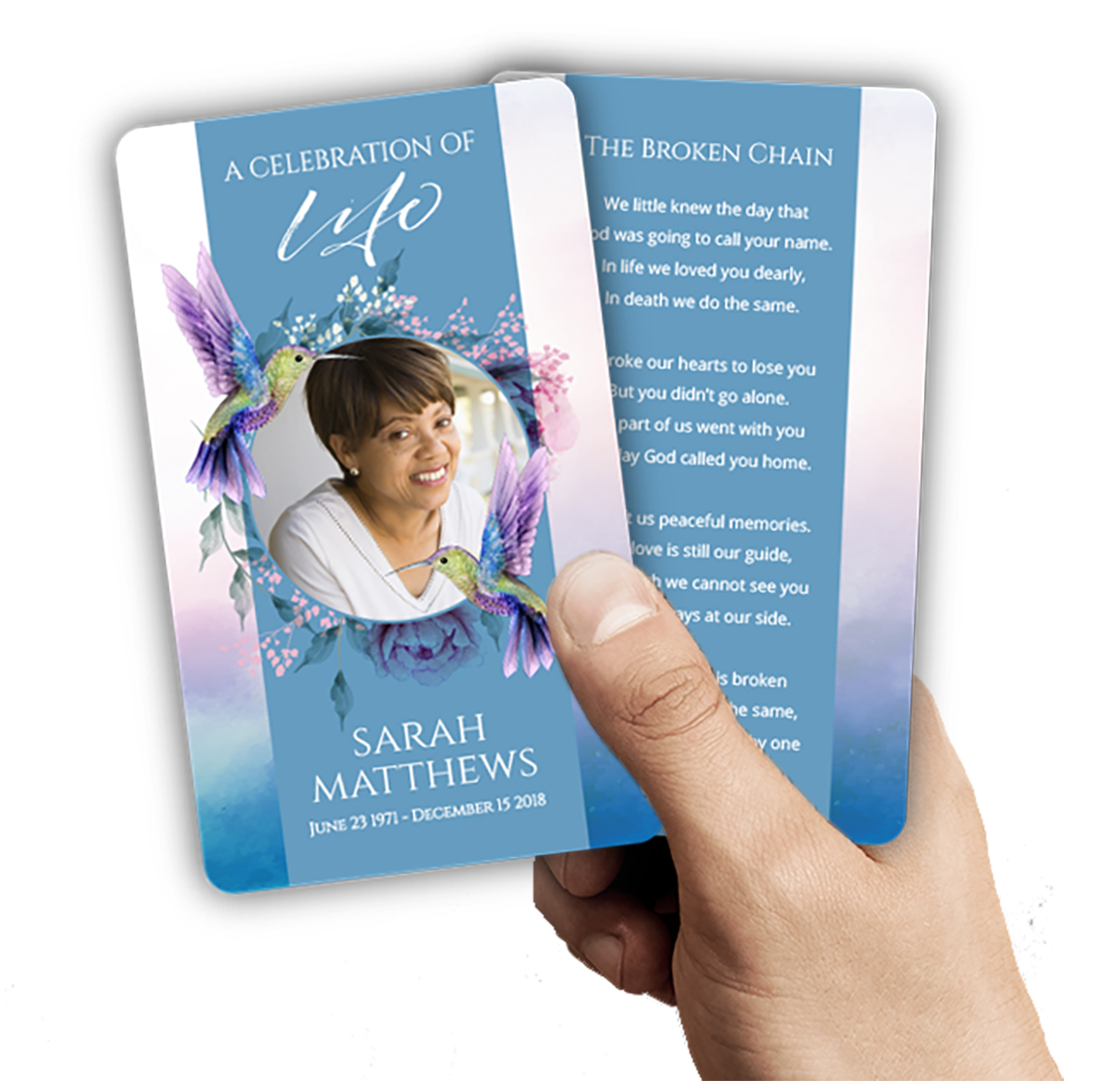 Cards & Bookmarks
Cards & Bookmarks Saint Prayer Cards
Saint Prayer Cards Folded Memorial Cards
Folded Memorial Cards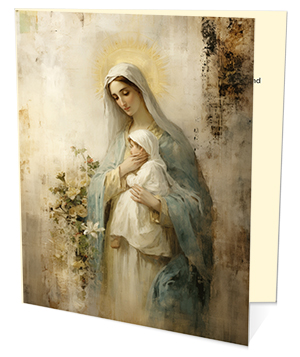 Folded Holy Cards
Folded Holy Cards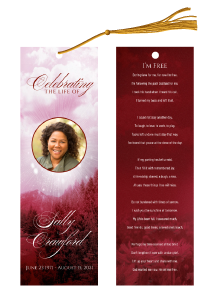 Memorial Bookmarks
Memorial Bookmarks Thank You Cards
Thank You Cards Share-A-Memory Cards
Share-A-Memory Cards Memorial Magnets
Memorial Magnets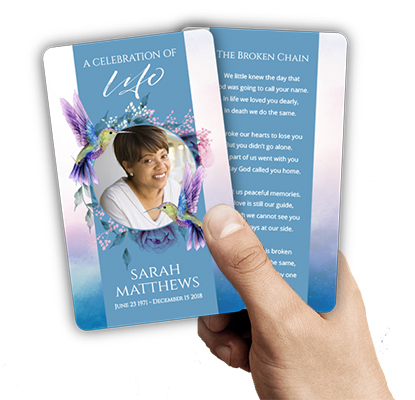
 Memorial Posters
Memorial Posters Guest Books
Guest Books Slide Shows
Slide Shows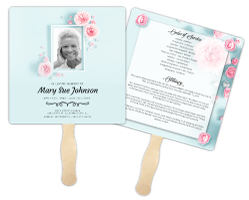 Memorial Fans
Memorial Fans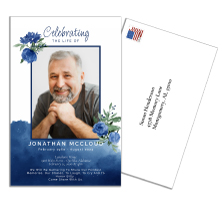 Death Announcements
Death Announcements Take Away Keepsakes
Take Away Keepsakes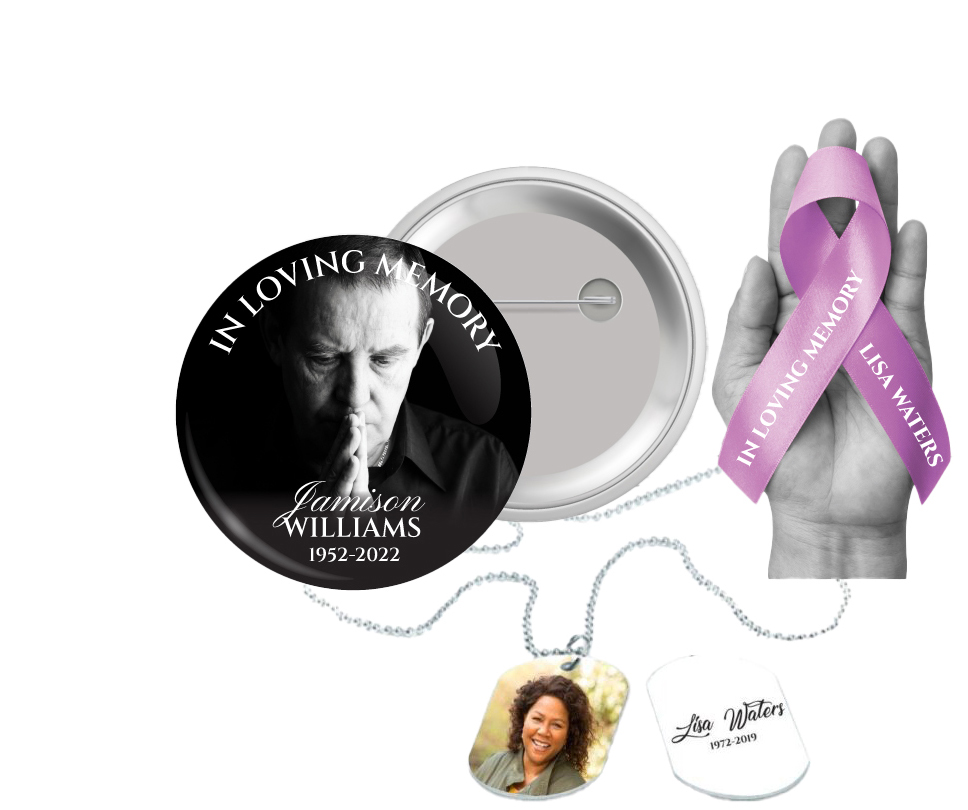
 Church Products
Church Products